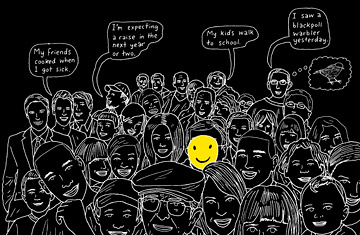
(4 of 4)
Politicians have always cited ideals in shaping public policy. In today's extreme partisan battleground, though, it's hard to imagine U.S. lawmakers setting aside their differences to agree on a single set of principles for screening every big decision. At the state and local levels, however, this is already happening. Maryland has begun using a genuine progress indicator (GPI) to "measure whether or not economic progress results in sustainable prosperity." Vermont's legislature passed a law to implement GPI in May, revitalizing a dormant effort to link the mission of Vermont's social-service agency--responsible for everything from public health to prisons--to quantifiable measures of well-being.
Lofty dreams have been recast in concrete terms. Instead of just "decreasing the lasting impacts of poverty on children," for example, the state has set a goal of reducing the reading-test-score gap between poor students and others by at least 10 points by 2015. To reach that target, Vermont's department for children and families will monitor enrollment rates in subsidized child care, prenatal care and other programs. Monica Hutt, director of policy and planning for Vermont's agency of human services, steers clear of words like happiness. "The word happiness really throws people off," she says. "It's about much more than that." Her aim is to "operationalize" happiness to make Vermont a safer, healthier place to live. "All of these things are connected to that happiness index that started in Bhutan."
When he first began sharing Bhutan's vision of sustainable development with the outside world, Thinley says, he did so only reluctantly. "We felt that the world was not ready," he says. The people of tranquil valleys and noisy cities all over the world are proving him wrong.
